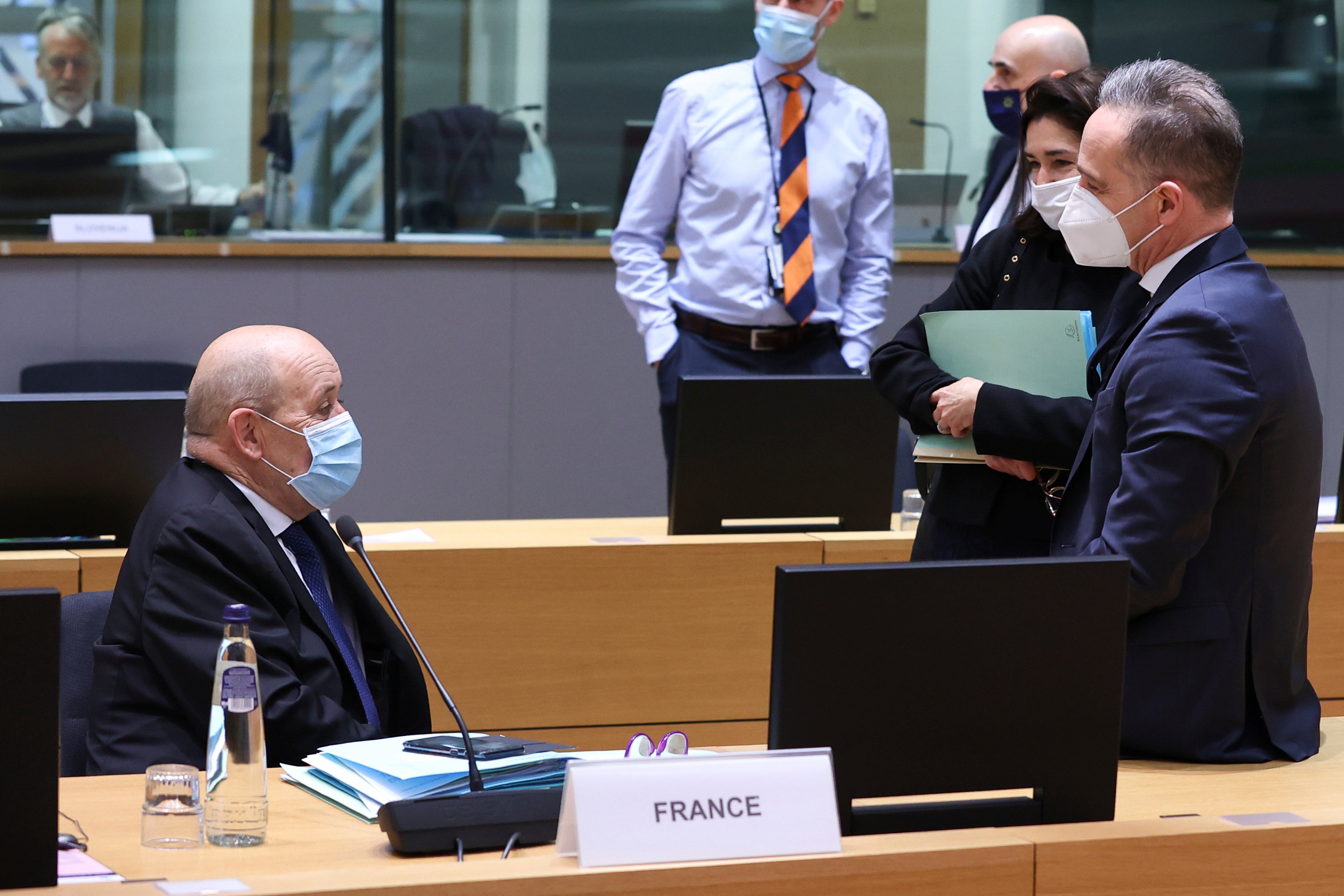EU targets 11 Myanmar officials over coup, crackdown
The European Union slapped sanctions Monday on 11 officials accused of involvement in the military coup in Myanmar and the crackdown on protesters that followed

Your support helps us to tell the story
From reproductive rights to climate change to Big Tech, The Independent is on the ground when the story is developing. Whether it's investigating the financials of Elon Musk's pro-Trump PAC or producing our latest documentary, 'The A Word', which shines a light on the American women fighting for reproductive rights, we know how important it is to parse out the facts from the messaging.
At such a critical moment in US history, we need reporters on the ground. Your donation allows us to keep sending journalists to speak to both sides of the story.
The Independent is trusted by Americans across the entire political spectrum. And unlike many other quality news outlets, we choose not to lock Americans out of our reporting and analysis with paywalls. We believe quality journalism should be available to everyone, paid for by those who can afford it.
Your support makes all the difference.The European Union on Monday imposed sanctions on 11 officials in Myanmar mostly top military officers, accused of involvement in last month's coup and the violent crackdown on peaceful protesters that followed.
Ten of the 11 targeted with asset freezes and travel bans are senior members of the Myanmar Armed Forces, including Commander-in-Chief, Min Aung Hlaing, and Deputy-Commander-in-Chief, Soe Win, EU headquarters said in a statement.
The other heads the election commission and is accused over his role in cancelling last year's polls.
Myanmar’s military junta prevented Parliament from convening on Feb. 1. It claimed that last November’s elections, won by Aung San Suu Kyi’s party in a landslide, were tainted by fraud. The election commission that confirmed the victory has since been replaced by the junta.
The coup reversed years of slow progress toward democracy in Myanmar after five decades of military rule. In the face of persistent strikes and protests against the takeover, the junta has responded with an increasingly violent crackdown and efforts to limit the information reaching the outside world.
Internet access has been severely restricted, private newspapers have been barred from publishing, and protesters, journalists and politicians have been arrested in large numbers.
The statement, issued during a meeting of EU foreign ministers, said the sanctions are part of the 27-nation bloc's “robust response to the illegitimate over-throwing of the democratically-elected government and the brutal repression by the junta against peaceful protesters.”
“The EU will continue to review all of its policy options, including additional restrictive measures against economic entities owned or controlled by the military,” the statement said, while ensuring that the “measures do not have an adverse effect on the general population.”
German Foreign Minister Heiko Maas said that “what we are seeing in the way of excesses of violence there is absolutely unacceptable; the number of killings has taken on intolerable dimensions."
“We don’t want to punish the population in Myanmar with sanctions, but those who are blatantly violating human rights there,” Maas told reporters.